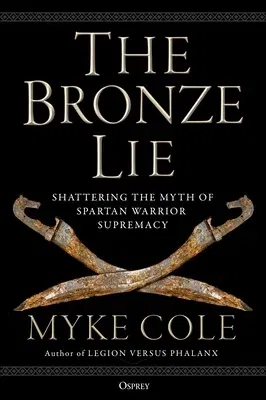The story of the Spartans is one of the best known in history, from
their rigorous training to their dramatic feats of arms--but is that
portrait of Spartan supremacy true? Renowned novelist and popular
historian Myke Cole goes back to the original sources to set the record
straight.
The Spartan hoplite enjoys unquestioned currency as history's greatest
fighting man. Raised from the age of seven in the agoge, a military
academy legendary for its harshness, Spartan men were brought up to
value loyalty to the polis (the city-state) above all else, and to
prize obedience to orders higher than their own lives. The last stand at
Thermopylae made the Spartans legends in their own time, famous for
their brevity and their ability to endure hardship, to control their
emotions, and to never surrender--even in the face of impossible odds,
even when it meant their certain deaths.
But was this reputation earned? Or was it simply the success of a
propaganda machine that began turning at Thermopylae in 480 BC?
Examining the historical record, both literary and material, paints a
very different picture of Spartan arms--a society dedicated to
militarism not in service to Greek unity or to the Spartan state itself,
but as a desperate measure intended to keep its massive population of
helots (a near-slave underclass) in line, forcing them to perform the
mundane work of farming, cleaning, building and crafting to permit the
dandified Spartan citizens (spartiatai) the time they needed to focus
on their military training.
Covering Sparta's full classical history, The Bronze Lie examines the
myth of Spartan warrior supremacy against the historical record, delving
into the minutiae of Spartan warfare from arms and armor to tactics and
strategy. With a special focus on previously under-publicized Spartan
reverses that have been left largely unexamined, it looks at the major
battles as well as re-examining major Spartan victories. Most
importantly, it re-examines Thermopylae itself, a propaganda victory
utterly out of proportion to its actual impact--a defeat that wasn't
even accomplished by 300 Spartans, but rather by thousands of allied
Greeks, all for the net effect of barely slowing a Persian advance that
went on to roam Greece unchecked and destroy Athens itself.

